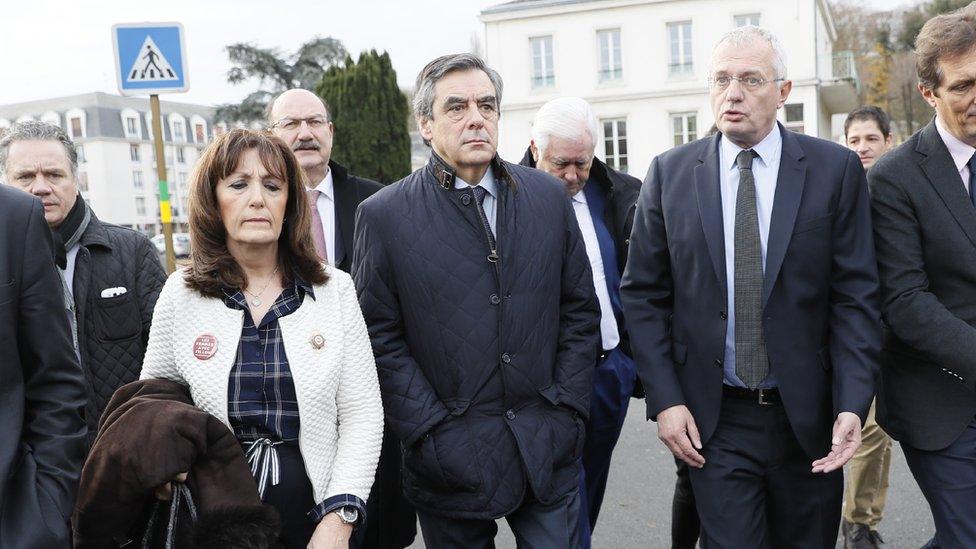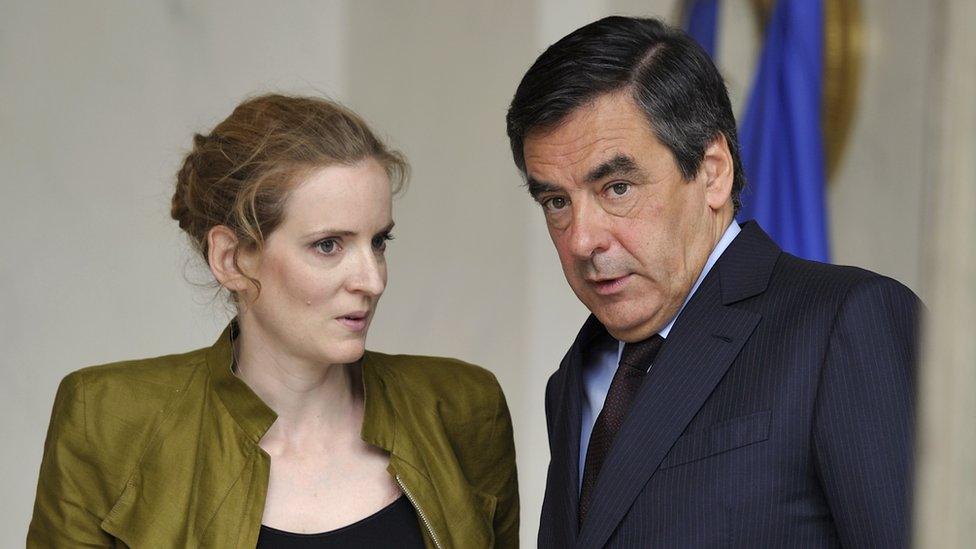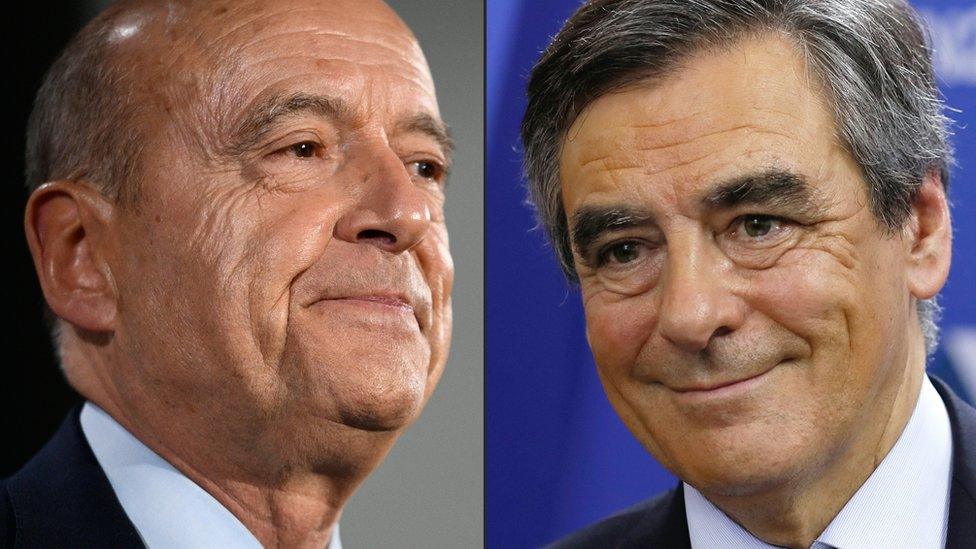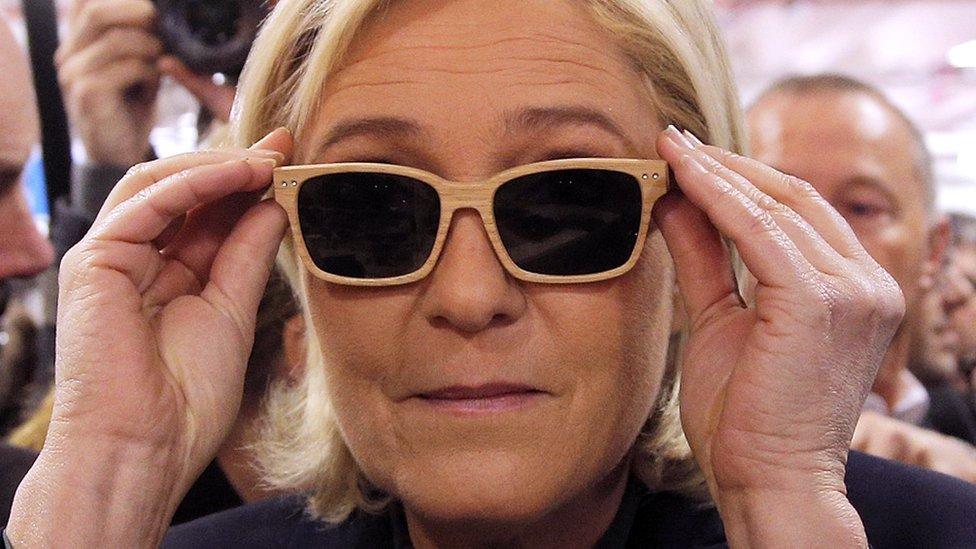France's Francois Fillon under fire over women's rights
- Published

Mr Fillon (C) has become the unexpected frontrunner in France's Republican race for the presidential nomination
The leading contender for France's centre-right presidential nomination, Francois Fillon, is facing tough questions over his stance on abortion and sex discrimination.
His rival, fellow Republican Alain Juppe, has urged him to "clarify his position" on abortion.
Meanwhile, a party colleague restated claims he denied her a ministerial post because she was pregnant.
Supporters will choose between Mr Fillon and Mr Juppe on Sunday.
It is the first time the centre right in France has used a US-style primary contest to select a candidate, ahead of the presidential election in April and May.
Juppe v Fillon: Battle of France's conservatives
Press review: France's 'Mr Nobody' Francois Fillon
In the first round of voting for the Republican nomination on Sunday, Mr Fillon took a clear lead with 44.1% while Bordeaux Mayor Mr Juppe received 28.5%. Five other contestants were knocked out.
As the campaign for the second round gathered pace on Tuesday, the candidates exchanged barbs over Mr Fillon's stance on abortion.
Mr Juppe claimed his rival had gone back on a previous statement affirming that abortion was a "fundamental human right".
Mr Fillon, who is personally opposed to abortion but against revisiting its legal status, reacted with fury, saying: "I would never have thought my friend could stoop so low."

Ms Kosciusko-Morizet held a succession of government posts when Mr Fillon was prime minister, from 2007 to 2012
Another former colleague and defeated primary contestant Nathalie Kosciusko-Morizet - who now backs Mr Juppe - has also renewed claims that Mr Fillon denied her a ministerial post because she was pregnant.
Ms Kosciusko-Morizet's remarks were first reported in 2013 in a profile by US network NBC, external, when she said she had twice been turned down for ministerial posts when she was pregnant. During her second pregnancy, in September 2009, Mr Fillon was prime minister.
"It's true," Nathalie Kosciusko-Morizet told Franceinfo TV, external. But she said it was a matter from the past, for which Mr Fillon had since expressed regret and which many woman would recognise as a wider problem in French society.
Several French commentators have also made the point that Ms Kosciusko-Morizet was not prevented from taking up a succession of posts in Mr Fillon's government:
June 2007-Jan 2009: Junior minister for ecology
Jan 2009-Nov 2010: Junior minister for strategic planning and digital development
Nov 2010-Feb 2012: Minister of ecology and sustainable development
Despite repeated attempts, Mr Fillon's team could not be reached for comment.
Mr Fillon was also criticised by centrist leader Francois Bayrou for his proposed liberal economic reforms, which include cutting half a million public sector jobs and scrapping the 35-hour work week.
Mr Bayrou called them "dangerous".
Meanwhile, Russian President Vladimir Putin's spokesman said Mr Putin had "rather good relations" with Mr Fillon, and that Moscow was closely watching the outcome of the primary.
- Published7 December 2016

- Published21 November 2016

- Published19 November 2016
